
When your child encounters
a difficult problem to solve, does your child:
● Have a POSITIVE and INDEPENDENT attitude to say " I'll work out this problem by myself ! "?
● Analyze and look for PATTERNS in the wordings or data?
● Ask themselves LOGICAL and DIRECT questions to probe the problem and find out the solutions?
● VISUALISE the problem in their mind?
MPM Math aims to improve confidence and inspire independent problem-solving. Our program trains children in mathematical concepts and calculation skills while exploring TRUE problem solving skills. Children will be able to solve sophisticated math problems using basic skills they have learned. The MPM program develops a positive self-learning attitude in children.

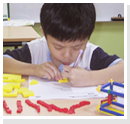
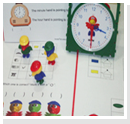
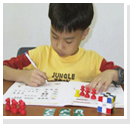
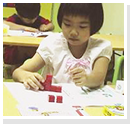
What is MPM?
MPM stands for Multi-Process and Multi-Model.
What is the goal of training children using the Multi-Process?
The purpose is to develop children’s critical thinking, allowing them to solve a complex problem through simple steps.
MPM aims to help children consider complex questions through logical reasoning and inference.
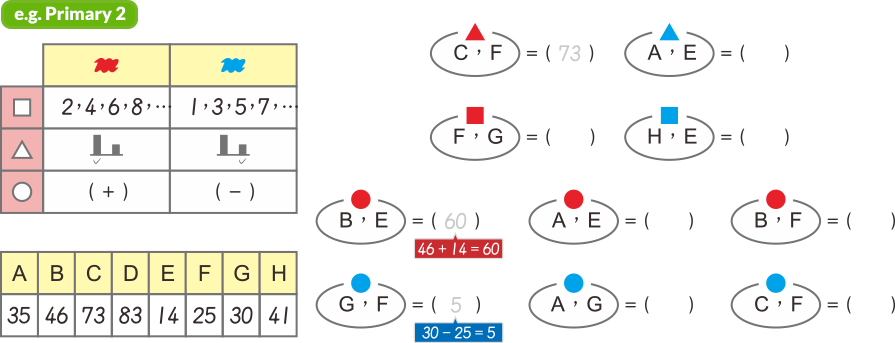
What is the goal of training children using the Multi-Model?
MPM encourages children to solve a problem through different methods.
Training children to think about or analyze questions from different perspectives can enhance their problem-solving abilities.
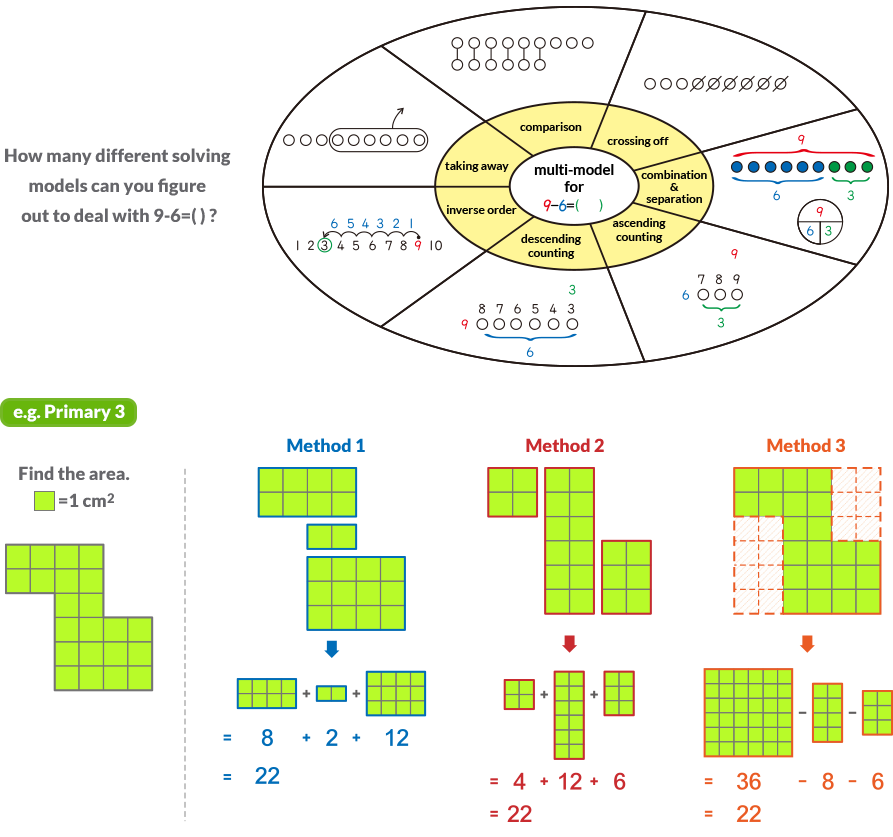
Teaching Philosophy
- Learning style -
Each child is the main character in their learning.
- In the classroom -
The children will solve exercises in their workbooks independently.
When they encounter questions, the teacher can provide guidance.
- In progress -
The children don’t have to waste time or give up on challenging problems because of other students.
Each child has their unique learning level to fit their abilities.
- In effect -
Each child should have the opportunity of thinking independently so that they can develop a positive learning attitude.
This learning process provides children with more confidence on challenging new questions.
Our dedication to education is to cultivate creative, gifted,
and talented students by stimulating their potential to think logically and critically.
Teaching Characteristics
In 1986, MPM started to promote mathematical education. Over the decades, we have developed a set curriculum,
step-by-step, to inspire creative thinking in math for the younger generation.
- A touch of the future -
A child’s future depends on their education and the abilities developed during their learning process.
Not only can learning outcomes from the MPM program help children in addressing challenges in their future careers,
but they can also equip them with a positive attitude and good learning habits.
The main spirit of creative thinking mathematics
The knowledge and ability of every student is not learned by rote,
but enhanced through active thinking.
Modern education needs more opportunities for children to learn actively, such as when children say, "this is what I’ve figured out!". Through this active learning process, students not only achieve knowledge and gain important lifelong skills, but they also experience a sense of achievement and build self-confidence.
Learning method of creative Thinking mathematics
In the study of mathematics, we should explore various methods and
use the one that we can understand fully.
We often find that the formula is difficult to memorize, and forget it after an exam. Modern education focuses on having students understand the question and approach completely, instead of memorizing the solution process.
Learning points of creative thinking mathematics
The key to the study of math starts from the special training of a child’s calculation ability,
and emphasizing understanding of questions rather than through repetition and memorization.
Learning math is not about learning calculations such as adding, subtracting, multiplying, and dividing.
The MPM program has developed effective methods to help students understand the problems and apply critical thinking to solve practical questions.
Learning process of creative thinking mathematics
Students are encouraged to think actively and consider various approaches
to a problem rather than use rote memorization.
Special attention to modern education:
Children should participate directly in their learning process, and develop abilities to apply in future situations.

Traditional group teaching and a personalized learning system have different effects on a child’s learning:
Class Mode


● One-way teaching – teacher lectures, and students are only involved in passive listening.
● Focuses on the "teaching" aspect; students imitate the teacher's method of solving problems.
● Long-term listening; children are merely only waiting for the teacher’s answers.
Learning Progress


● Unified schedule; no consideration of student limitations and preferences.
● Fixed class time; students must take class during enrolled time.
● Fixed class time; difficult to understand the learning progress of each student.
● Students who fall behind may lose their confidence and enthusiasm for learning.
Learning Results


● Less assertive; basically judge by "the teacher said...".
● Memorize a lot of question-solving skills instead of fully understanding the problem.
● Passive learning atittude.
● Gives up easily when encountering a new question.
● Focus on learning only for high exam or school grades.
● Develop dependence on others, especially teachers.
Copyright (c) 2017 Leadwave Educational Institute All rights reserved.
 |